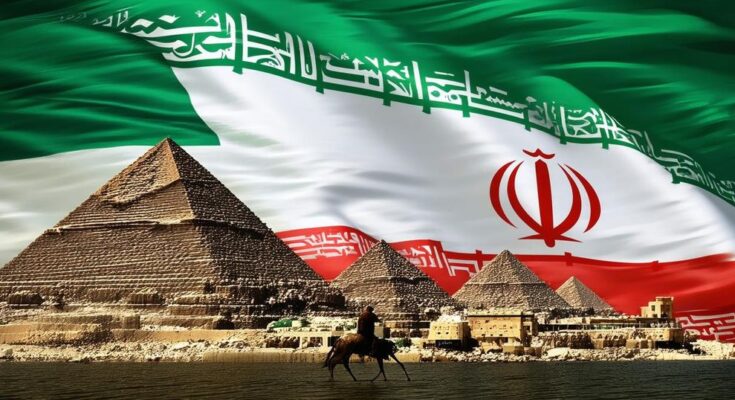Several Arab allies of the United States are increasingly engaging with Iran amid escalating tensions and the US’s ineffective efforts to mediate conflicts in the Middle East. As a result, Arab countries have shifted their diplomatic strategies, seeking neutrality in regional disputes while re-evaluating their security reliance on the US.
In light of the United States’ perceived inability to mitigate escalating violence in the Middle East, several of Washington’s key Arab allies have begun to rekindle relations with Iran, the region’s principal adversary. Recent diplomatic engagements by Arab states aim to prevent a broader conflict as American efforts falter. US Secretary of State Antony Blinken’s latest trip to Israel marked his eleventh visit within a year, ostensibly to facilitate a ceasefire following the assassination of Hamas leader Yahya Sinwar. However, US officials maintain a cautious outlook, given Israel’s determination to continue military actions in both Gaza and Lebanon in defiance of international pressure for restraint. In a significant act of aggression, Iran launched a large-scale missile attack on Israel in early October, responding to perceived provocations including the recent killings of key figures in Hezbollah and Hamas. Historically, Arab nations have harbored mistrust towards Iran, primarily due to its Shiite influence in an area dominated by Sunni states and its backing of militant groups such as Hezbollah and Hamas. Iran has undertaken an assertive diplomatic campaign, meeting with various Arab leaders, including Saudi Crown Prince Mohammed bin Salman, who had previously labeled the Iranian Supreme Leader as the “new Hitler of the Middle East.” The frequency of these engagements suggests a shift in Arab strategy, as they strive to navigate the complexities of regional geopolitics while prioritizing stability. Despite past animosities, Arab states are now signaling a desire for neutrality. Following diplomatic talks, Iranian officials have reported assurances from neighboring nations that they will not allow their territories to be used for attacks on Iran. This reflects a strategic pivot as Gulf states express a critical need to balance their economic ambitions against the backdrop of potential regional warfare. The ongoing conflict has raised concerns among Gulf Arab monarchies regarding their own security. The prolonged hostilities in Lebanon and Gaza have led to a reevaluation of the United States’ role as a guarantor of their security, particularly after the US failed to respond decisively to previous Iranian attacks on Saudi and Emirati soil. There is an evident skepticism towards America’s commitment to protect its allies in an increasingly volatile environment, prompting Arab states to explore alternative avenues of engagement with Iran. The evolving landscape underscores a critical junction for Gulf nations as they seek to navigate the implications of US foreign policy shifts, their relationships with Iran, and the broader regional stability.
This article discusses the changing dynamics in the Middle East, particularly the growing engagement between Arab states and Iran amidst a backdrop of escalating violence and tension, crucially influenced by a shifting US foreign policy. The failure of the US to effectively mediate conflicts in the region has prompted Arab nations to reassess their previous antagonism towards Iran and seek a more neutral stance, highlighting the implications for regional stability and their security interests.
In summary, the article illustrates a significant transformation in how Arab allies of the United States are responding to the heightened tensions with Iran. As relations between Arab states and Iran thaw, there is a concerted effort to avert broader conflict amid concerns over the reliability of US support. Both the Arab states’ engagement with Iran and their prioritization of regional stability reflect a significant shift in strategy that may reshape future dynamics in Middle Eastern geopolitics.
Original Source: www.cnn.com



